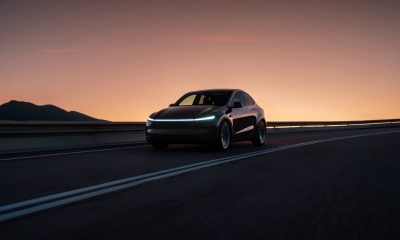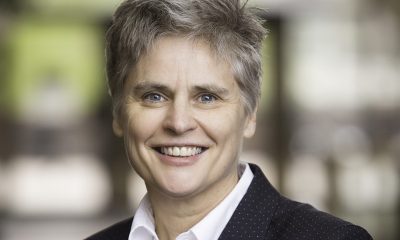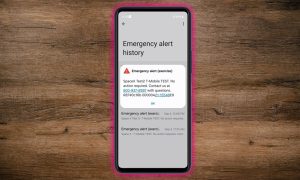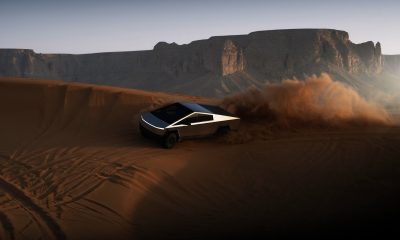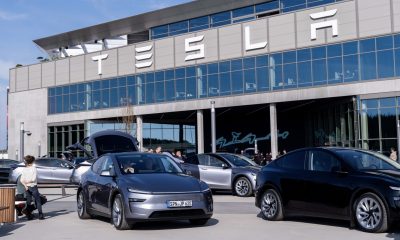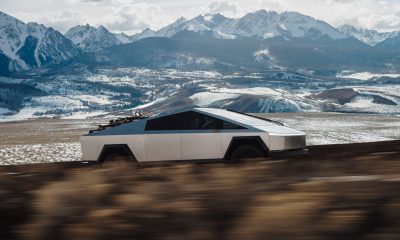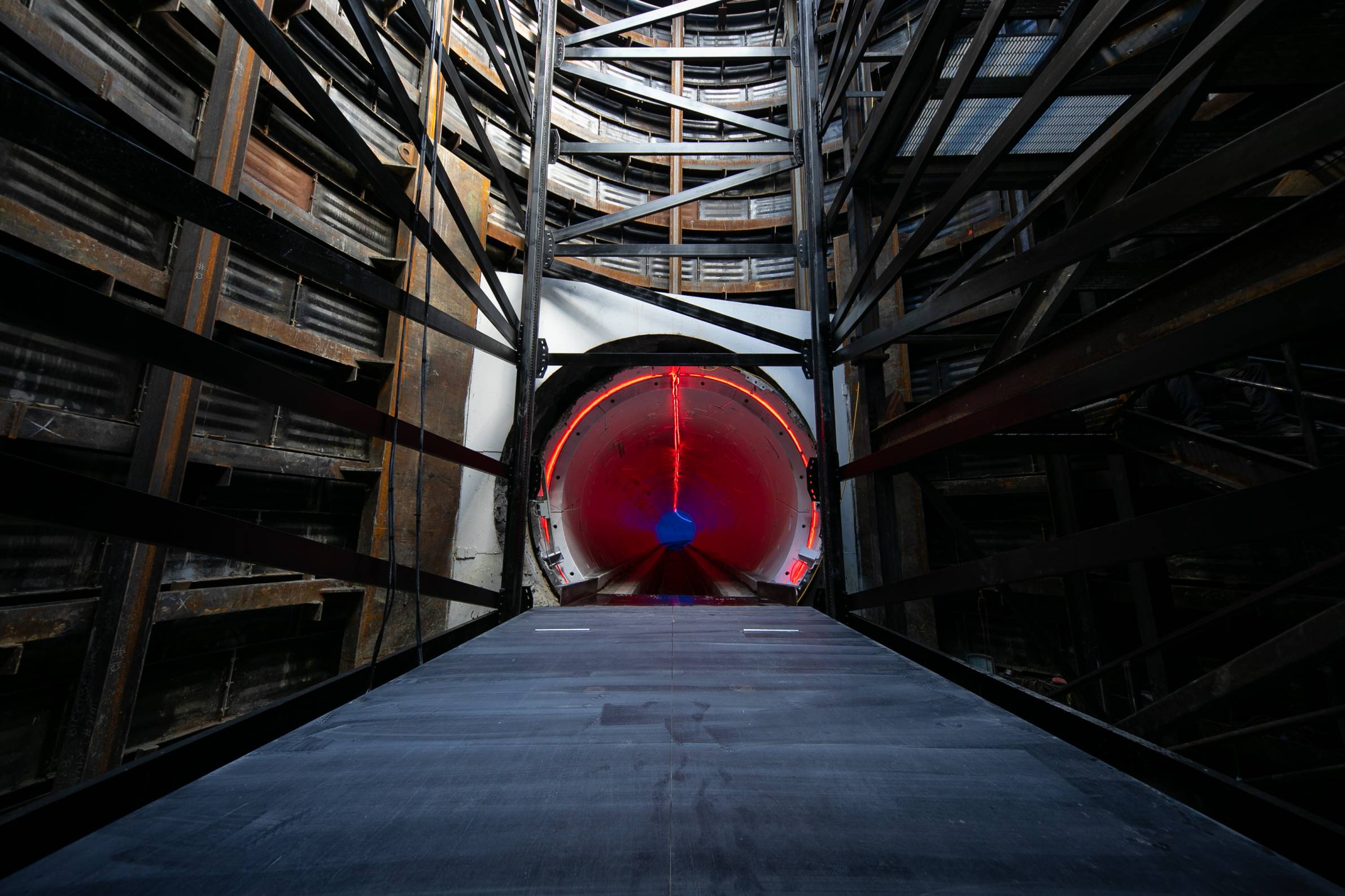

News
The Boring Company skeptics are making the same mistakes as Tesla and SpaceX critics
The Boring Company is truly becoming an Elon Musk-founded company in more ways than one. Apart from developing quite rapidly for a startup of its nature, the tunneling firm is also receiving quite a lot of criticism from avid skeptics, many of whom seem to be under the impression that the Boring Company’s projects are pointless, or badly-planned at best.
Earlier this month, CNN Business published a piece on The Boring Company’s Las Vegas Convention Center loop system, which is poised to be opened early next year. The project was granted a $48.6 million contract but is expected to cost a total of $52.5 million, and it involves two mile-long tunnels where Teslas could ferry passengers from one side of the Las Vegas Convention Center complex to the other.
Needless to say, several individuals consulted by the news agency were extremely skeptical of The Boring Company’s vision. Christof Spieler, a lecturer at Rice University who researches transit and urban planning, sharply criticized the tunneling startup’s concepts, arguing that the Loop system seems poorly thought-out. “These feel like the kind of renderings an architecture student would do for their one-semester project. I don’t see any evidence that this has really been thought through in terms of how it would function,” he said.
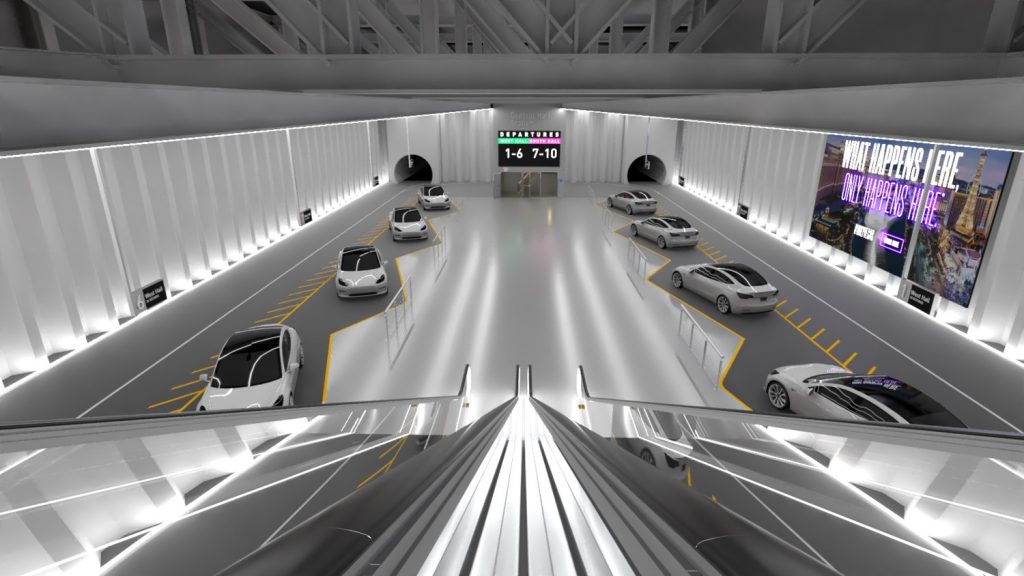
Explaining further, Spieler remarked that the LVCC Loop’s renderings make the system look more like taxi-loading areas. With such a system in place, the lecturer noted that issues would likely arise when the system is in operation, such as cars jockeying past each other to pull in and out, which would, in turn, adversely affect the system’s operations. He also noted that the renderings do not seem to show any barriers that would block unauthorized cars from entering the tunnels.
Ultimately, Spieler noted that a standard people mover is still a superior solution, as passengers do not need to duck to board vehicles and they could also hold their luggage instead of accessing a car’s trunk. “It seems like car-thinking applied to a transit problem that we already know how to solve,” he said.
Gerry Tierney, who co-directs the mobility lab at Perkins&Will, which has designed transit systems in North America and the Middle East, was bolder in his criticism of The Boring Company. He took issue with the system’s use of Teslas, calling the idea “comically inefficient” and refusing to call the LVCC Loop a transit system. “This is not a transit system. It’s a system for driving electric vehicles underground,” he said, adding that Musk’s idea is pretty much what would happen if intricate transit systems like the London Underground replaced its subway trains with cars.
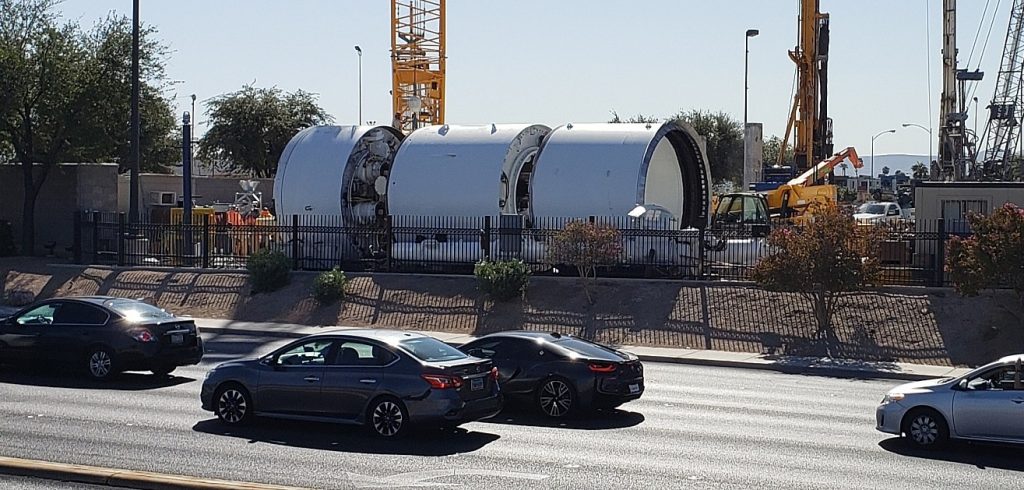
While The Boring Company’s technology is yet to be proven, it also seems pretty careless to completely discount the LVCC Loop’s potential even before it could be tested. The Boring Company and its technology are not being developed by a random group of unqualified individuals, after all, and Elon Musk himself has proven over the years that even conventionally insane ideas–such as landing the first stage of an orbital rocket on a drone in the middle of the ocean or scaling the production of a mass-market electric car–could be feasible if enough work is put into them.
Overall, the tunneling startup’s skeptics seem to be making the exact same mistakes as those who were also critical of Musk’s previous projects in SpaceX and Tesla. Musk was not joking when he remarked that the idea of using Teslas in tunnels is more profound than it sounds. This is partly because The Boring Company’s innovations are not really its people-movers, it is the tunnels themselves. While the use of all-electric vehicles in the Loop systems is a key part of the Boring Company’s vision, the startup’s true disruption lies in the ways that it could build tunnels far quicker and far cheaper than any other company in the industry.
The Boring Company intends to accomplish these goals with rather simple solutions. Smaller tunnels are faster to build, so the tunneling startup designed its tunnels to accommodate smaller vehicles. All-electric cars are used so that the tunnels do not require an extensive system designed to handle emissions from vehicles that use it. The Boring Company’s tunnel boring machines (TBMs) are also optimized consistently, making them progressively faster and cleaner to use. These may all seem like little adjustments to conventional tunneling practices, but each one represents a step towards a potential future where tunnels could be built at scale rapidly, and perhaps even autonomously.
It is easy to mock or dismiss the ideas of people like Elon Musk and his teams at The Boring Company, SpaceX, and Tesla. But inasmuch as Musk’s companies make it pretty easy to target them due to their goals and nature, SpaceX and Tesla’s history shows that more often than not, it is a mistake to bet against Musk and his team of visionaries, almost all of whom seem to have the tendency to think outside the box by default. As for the Boring Company’s LVCC Loop, there seems to be a good chance that it could outperform expectations, with recent simulations showing that the system could move about 13,000 people an hour, and that’s with the system operating nowhere near their limit.
News
Tesla robotaxi test details shared in recent report: 300 operators, safety tests, and more
Tesla has launched an initial robotaxi service for its employees in Austin and the San Francisco Bay Area.
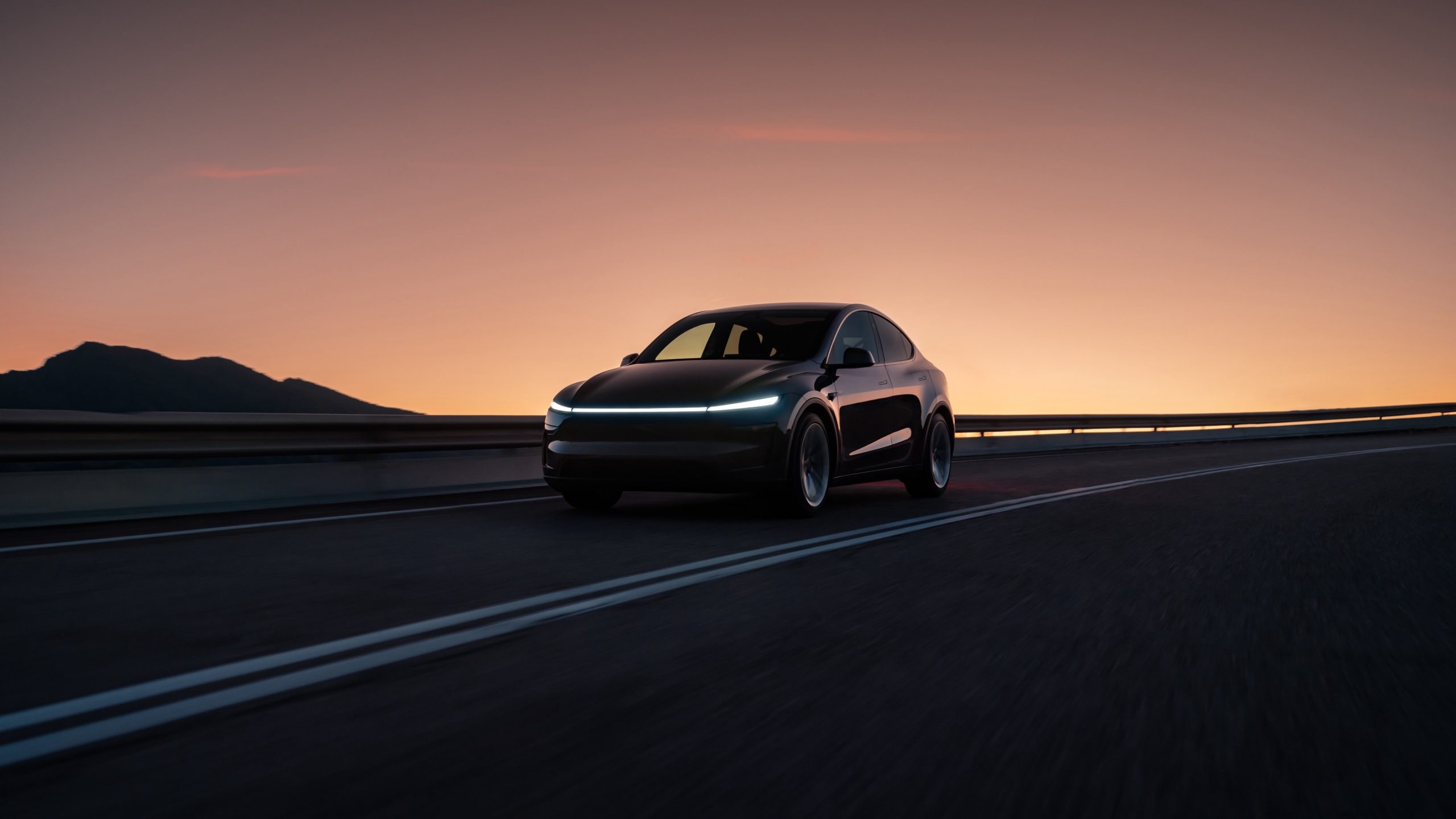
During the Q1 2025 earnings call, Tesla executives reiterated the idea that the company will be launching a dedicated robotaxi service using its Full Self Driving (FSD) Unsupervised system this coming June.
A recent report from Insider, citing people reportedly familiar with the matter, has now provided a number of details about the preparations that Tesla has been making as it approaches its June target date.
Remote Operators
As noted by the publication, about 300 test operators have been driving through Austin city streets over the past few months using Teslas equipped with self-driving software. These efforts are reportedly part of “Project Rodeo.” Citing test drivers who are reportedly part of the program, Insider noted that Tesla’s tests involve accumulating critical miles. Test drivers are reportedly assigned to specific test routes, which include “critical” tracks where drivers are encouraged to avoid manual interventions, and “adversarial” tracks, which simulate tricky scenarios.
Tesla has launched an initial robotaxi service for its employees in Austin and the San Francisco Bay Area, though the vehicles only operate in limited areas. The vehicles also use safety drivers for now. However, Tesla has reportedly had discussions about using remote operators as safety drivers when the service goes live for consumers. Some test drivers have been moved into remote operator roles for this purpose, the publication’s sources claimed.
While Tesla is focusing on Austin and San Francisco for now, the company is reportedly also deploying test drivers in other key cities. These include Atlanta, GA, New York, NY, Seattle, WA, and Phoenix, AZ.
Safety Tests
Tesla reportedly held training events with local first responders as part of its preparations for its robotaxi service, Insider claimed, citing documents that it had obtained. As per the publication, Tesla had met with the city’s autonomous vehicle task force, which include members of the Austin Fire Department, back in December.
Back in March, Tesla reportedly participated in about six hours of testing with local first responders, which included members of the fire department and the police, at a close test track. Around 60 drivers and vehicles were reportedly used in the test to simulate real-world traffic scenarios.
Interestingly enough, a spokesperson from the Austin Police Department stated that Tesla did hold a testing day with emergency responders from Austin, Williamson County, as well as the Texas Department of Public Safety.
Reported Deadlines
While Tesla has been pretty open about its robotaxi service launching in Austin this June, the company is reportedly pursuing an aggressive June 1 deadline, at least internally. During meetings with Elon Musk, VP of AI software Ashok Elluswamy’s team reportedly informed the CEO that the company is on track to hit its internal deadline.
One of Insider’s sources, however, noted that the June 1 deadline is more aspirational or motivational. “A June 1 deadline makes a June 30 launch more likely,” the publication’s source noted.
News
Atty who refused to charge six-time Tesla vandal sparks controversy
Despite the multiple offenses, Moriarty opted to enter Adams into an adult diversion program instead.
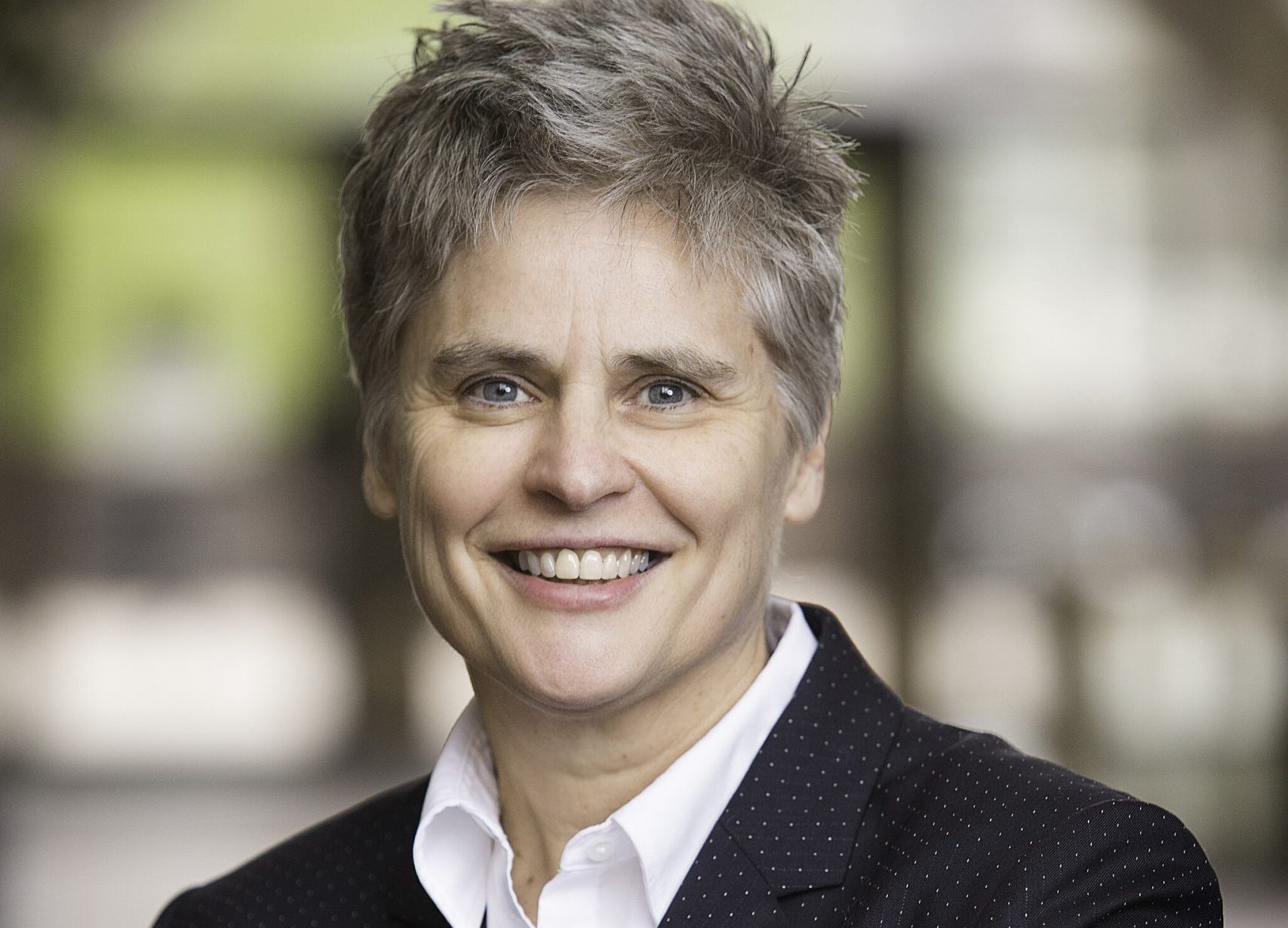
Hennepin County Attorney Mary Moriarty, who made the decision not to charge 33-year-old vandal Dylan Bryan Adams after he keyed six Teslas around Minneapolis last month, has found herself in the middle of controversy.
The controversy came amidst her decision to press charges against a 19-year-old first-time vandal who keyed one vehicle at the White Castle in Brooklyn Park.
The Tesla Vandal
Moriarty’s decision not to charge Adams after he keyed six Teslas was met with widespread criticism. Adams’ actions resulted in more than $20,000 worth of damages, more than $10,000 of which was to a single vehicle, as noted in a New York Post report. Yet despite the multiple offenses, Moriarty opted to enter Adams into an adult diversion program instead.
The fact that Adams is a state employee who works for the Department of Human Services as a program consultant triggered allegations that his dismissal might be partly influenced by Gov. Tim Walz. Walz is a staunch critic of Musk, previously stating that the falling price of TSLA stock gives him a “boost” in the morning.
As noted in a report from The Minnesota Star Tribune, Moriarty’s decision was so controversial that she was asked about the matter on Wednesday. In response, the attorney argued that her office made the decision outside of any political consideration. “We try to make decisions without really looking at the political consequences. Can we always predict how a story will be portrayed in the media or what people will say? No,” Moriarty stated.
Actually Charged
As noted by the Tribune, Moriarty has made arguments around the fact that Adams was a first-time offender, even if he opted to deface six separate Teslas. But even this argument has become controversial since Moriarty recently charged a 19-year-old Robbinsdale woman with no criminal record with first-degree felony property damage after she allegedly keyed a co-worker’s car. The damage incurred by the 19-year-old woman was $7,000, substantially less than the over $20,000 damage that Adams’ actions have caused.
Cases surrounding felony first-degree property damage are fairly common, though they require the damage to be over $1,000. The 19-year-old’s damage to her co-worker’s car met this threshold. Adams’ damage to the six Teslas he vandalized also met this requirement.
When Moriarty was asked about her seemingly conflicting decisions, she noted that her office’s primary goal was to hold the person accountable for keying the vehicle and get restitution to the people affected. She also noted that her office tries to avoid convictions when possible since they could affect a person’s life. “Should we have treated this gentleman differently because it’s a political issue? We made this decision because it is in the best interest of public safety,” she noted.
News
Tesla faces emission credits tax in Washington state
House Bill 2077 taxes emissions credits, mainly hitting Tesla. Lawmakers expect $100M/year from the taxes.
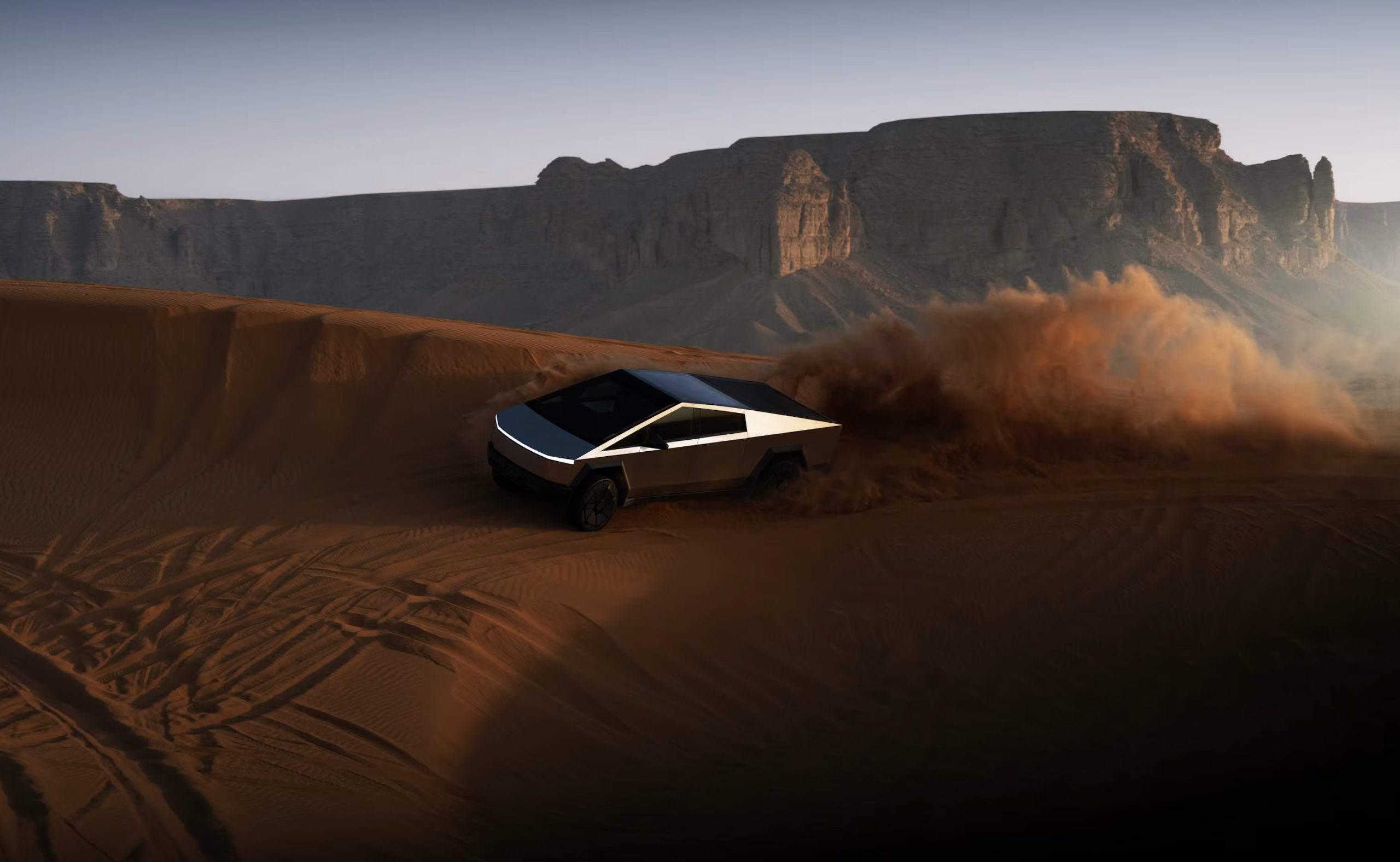
Washington state lawmakers are advancing a bill that would tax Tesla’s emission credits, targeting profits under the state’s clean vehicle policy. Lawmakers who support the bill clarify that the Tesla credit tax is unrelated to Elon Musk.
HB 2077, introduced in mid-April, seeks to impose a 2% tax on emission credit sales and a 10% tax on banked credits. The bill primarily affects Tesla due to exemptions for companies with fewer credits.
In 2022, Washington’s Department of Ecology mandated that all new cars sold by 2035 be electric, hydrogen-fueled, or hybrids, with 35% compliance required by next year. Carmakers selling more gas-powered vehicles can buy credits from companies like Tesla, which sells only electric vehicles.
A legislative fiscal analysis projects taxes on those credits would generate $78 million in the 2025-27 biennium and $100 million annually thereafter. About 70% of the taxes will be allocated to the state’s general funds, and the rest will help expand electric car infrastructure.
HB 2077 passed the state House eight days after its introduction and awaits a Senate Ways and Means Committee vote on Friday. At a House Finance Committee hearing, supporters, including union and social service advocates, argued the tax would prevent cuts to state services.
House Majority Leader Joe Fitzgibbon emphasized its necessity amid frozen federal EV infrastructure funds. “We didn’t have a budget crisis until this year. And we didn’t have the federal government revoking huge amounts of federal dollars for EV infrastructure,” he said.
Tesla’s lobbyist, Jeff Gombosky, countered that the proposal “runs counter to the intent” of the state’s zero-emission policy. Rivian’s lobbyist, Troy Nichols, noted a “modest” impact on his company but warned it could undermine the EV mandate. Kate White Tudor of the Natural Resources Defense Council expressed concerns, stating, “We worry it sets a dubious precedent.”
Fitzgibbon defended the tax, noting Tesla’s dominant credit stockpile makes it “one outlier” that is “very profitable.” “That’s the kind of thing legislators take an interest in,” he said. “Is it serving the interest of the public for this asset to be untaxed?”
With the legislative session nearing its end, the bill remains a key focus in budget talks in Washington.
-
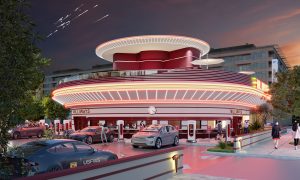
 News4 days ago
News4 days agoTesla’s Hollywood Diner is finally getting close to opening
-
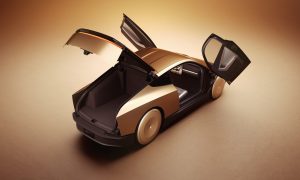
 Elon Musk1 week ago
Elon Musk1 week agoTesla doubles down on Robotaxi launch date, putting a big bet on its timeline
-

 News1 week ago
News1 week agoTesla’s top investor questions ahead of the Q1 2025 earnings call
-
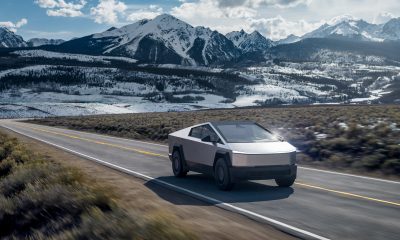
 News2 weeks ago
News2 weeks agoTesla launches cheapest and longest range Cybertruck trim yet
-

 News2 weeks ago
News2 weeks agoUnderrated Tesla safety feature recognized by China Automotive Research Institute
-
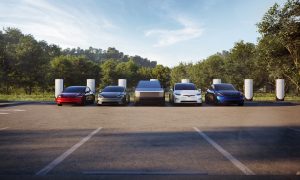
 News2 weeks ago
News2 weeks agoThese were the best-selling EV brands in the U.S. in Q1
-
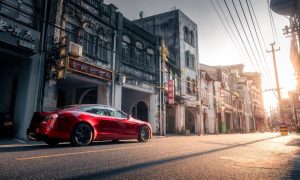
 News2 weeks ago
News2 weeks agoTesla China discontinues Model S and Model X orders amid tariff war
-
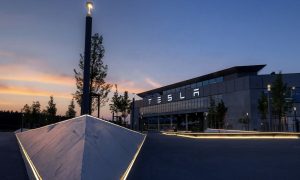
 News2 weeks ago
News2 weeks agoTesla Giga Berlin sets record for free EV charging park

